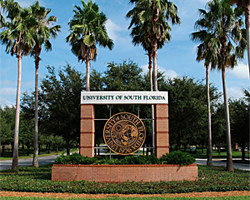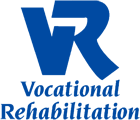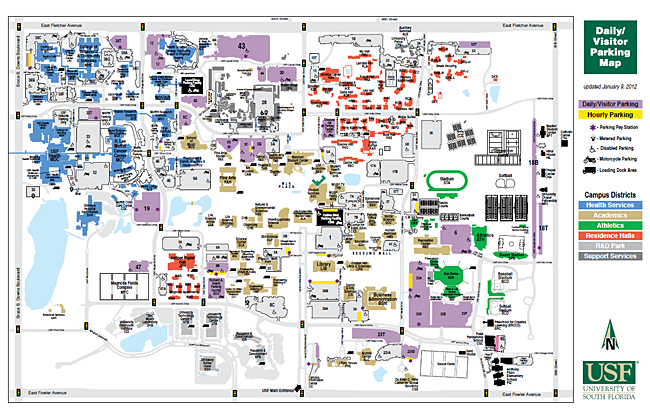Vision
To be a leader in global collaborative research, education and service for improving the quality of life of individuals with impairments and functional limitations due to aging and disability.
Mission
CARRT's mission is to improve the quality of life, and increase independence and community reintegration of individuals with reduced functional capabilities due to aging, disability or traumatic injury, as in the case of our wounded warriors, through integrated research, education and service in assistive and rehabilitation, and robotics technologies in collaboration with consumers, clinicians, government and industry partners.
Objectives
- Research: To create infrastructure and conduct cutting edge interdisciplinary and inter-institutional collaborative research and development in assistive, rehabilitation, and robotics technologies.
- Education:To increase the capacity of engineers, researchers, and practitioners in the field through education and training; and develop highly skilled, high wage workforce. To provide technology-related mentoring services to K-12 students and teachers. To conduct exhibitions, public displays and media reports; and host technology awareness events.
- Service: To provide technical assistance to agencies on standards and public policy. Offer rehabilitation engineering technology referral and advising services to hospitals, service providers, and people with disabilities locally, regionally and internationally.
- Dissemination and Technology Transfer:To publish technical papers at international journals and conferences; and conduct local and regional workshops, seminars and conferences. The CARRT team applies for patents and facilitates technology transfer through the creation of start-up companies.

Collaborators

College of Engineering
Mechanical EngineeringElectrical Engineering
Computer Science & Engineering
USF Health
School of Physical Therapy & Rehabilitation SciencesCollege of Arts and Sciences
PsychologyCollege of the Arts
School of Theatre and DanceSchool of Music
College of Behavioral & Community Sciences
College of Marine Science

Resources
The following is some of the available CARRT facilities, equipment and other resources:
- Assistive and Rehabilitation Robotics Lab (ENG-19A):
- 562 PUMA 6DOF robotic arm
- Research Robotics Corporation (RRC) 7-DOF workstation robotic arm
- Phantom Omni – haptic device
- BarrettHand gripper
- Spaceball
- Basic Stamp Works Kits
- Mechatronics Kits
- Digital Servo Workshop
- Automotive Transducer Kit,
- LabVIEW Virtual Instruments with multi-channel digital data acquisition and systems control
- BumbleBee Stereovision Camera
- SICK Laser Range Finder
- Microsoft Kinect System
- Rehabilitation Robotics & Prosthetics Testbed (RRT):
- Vicon Motion Analysis System 8 infrared cameras with tripods 612 datastation –64 analog inputs, Canon digital video camera, Software: Vicon Workstation, Bodybuilder, Polygon, Analysis toolkit
- Visual 3D Motion Analysis Biomechanics Software (C-Motion)
- 2 AMTI Force Platforms (OR6-7-1000) with amplifiers
- ATI 6 axis force transducer with amplifier (currently connected to door knob on ADL testing apparatus)
- Solo-step –safety trolley and harness system (order in process)
- Exact Dynamics Manus robotic manipulator
- Exact Dynamics iARM mobile robot
- Raptor
- WMRA II (USF)
- Activities of Daily Living (ADL) testing apparatus (USF) –door, steering wheel, light switches, shelving, sink with faucet
- REEDS Lab & Virtual Reality Lab (IDR-114):
- AEVIT drive by wire hand controls from Electric Mobility Control
- SSI driving simulator
- Cut away van that combines systems (USF)
- Hands free wheelchair (USF)
- Dance platform (USF)
- Rapid prototyping machine
- Four Phantom Omnis
- Laser cutter
- CARRT Pricelist
-
The following is a downloadable CARRT pricelist for using CARRT resources or services:
CARRT Pricelist
- CARRT Brochure
-
The following is a downloadable CARRT brochure that includes some information about CARRT's research, education and service:
CARRT Brochure
- CARRT YouTube Channel
-
You can look at various videos of CARRT research and service projects through the following link:
CARRT YouTube Channel

Contact Information

Mailing Address:
Center for Assistive, Rehabilitation and Robotics TechnologiesUniversity of South Florida
4202 E. Fowler Ave, ENG 030
Tampa, Florida 33620
For general inquiries:
Phone: +1 (813) 974-3977Fax: +1 (813) 974-3369
Email: Please email one of CARRT personnel below:
For inquiries related to research:
Dr. Redwan AlqasemiPhone: +1 (813) 974-2115
Fax: +1 (813) 974-3539
Email: alqasemi@usf.edu
For inquiries related to education:
Dr. Stephanie CareyPhone: +1 (813) 974-5765
Fax: +1 (813) 974-3539
Email: scarey3@usf.edu
For inquiries related to service:
Stephen SundarraoPhone: +1 (813) 974-5346
Fax: +1 (813) 974-3369
Email: sundarra@usf.edu

Maps & Directions
Directions to Campus
- From the east: Take I-4 west to exit 9 / I-75 north. Travel north on I-75 for 3.8 miles to Exit 265 / Fowler Avenue. Head west on Fowler Avenue 4.4 miles to the university's main entrance at Leroy Collins Boulevard.
- From the west/Tampa International Airport: Take I-275 North to Exit 45B / I-4 East. Travel east on I-4 for 8.1 miles to Exit 9 / I-75 North. Travel north on I-75 for 3.8 miles to Exit 265 / Fowler Avenue. Head west on Fowler Avenue 4.4 miles to the university's main entrance at Leroy Collins Boulevard.
Assistive & Rehabilitation Robotics Lab
Located in:
Engineering Building I (Kopp)
Building abbreviation: ENG
Lab number: 19A
Physical address:
Beard Drive
Tampa, FL 33620
Phone number:
(813) 974-7367
Rehabilitation Robotics & Prosthetics Testbed
Located in:
Rehabilitation Robotics & Prosthetics Testbed Building
Building abbreviation: RRT
Physical address:
13335 USF Laurel Drive
Tampa, FL 33620
Phone numbers:
(813) 974-9650
(813) 974-9651
Adaptive Driving & Virtual Reality Simulation
Located in:
Research Building
Building abbreviation: IDR
Lab number: 114
Physical address:
3720 Spectrum Blvd
Tampa, FL 33620
Phone number:
(813) 974-6033

"Center for Assistive, Rehabilitation & Robotics Technologies"
Research - Education - Service



